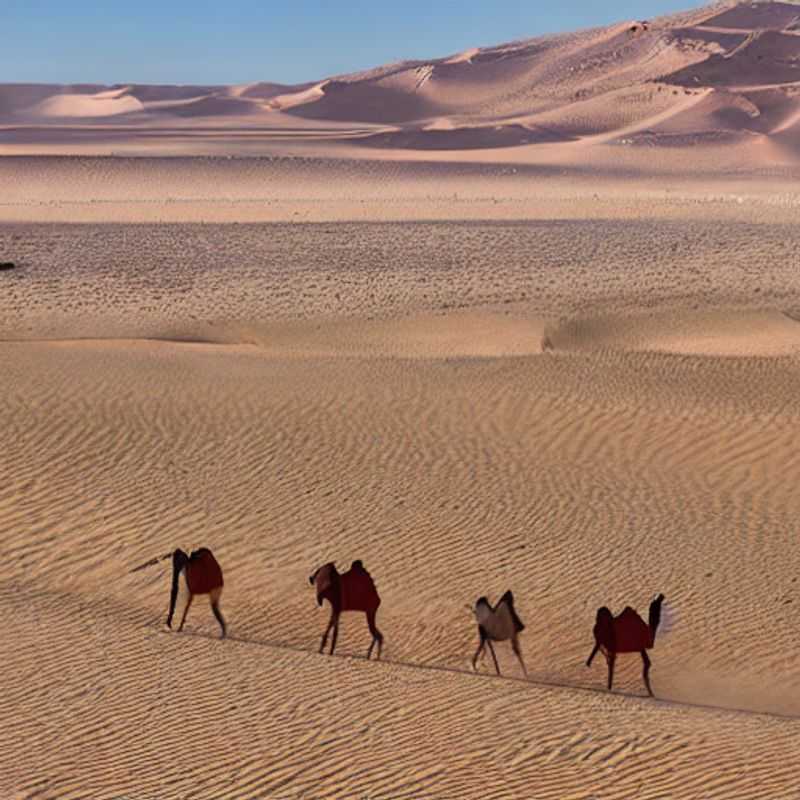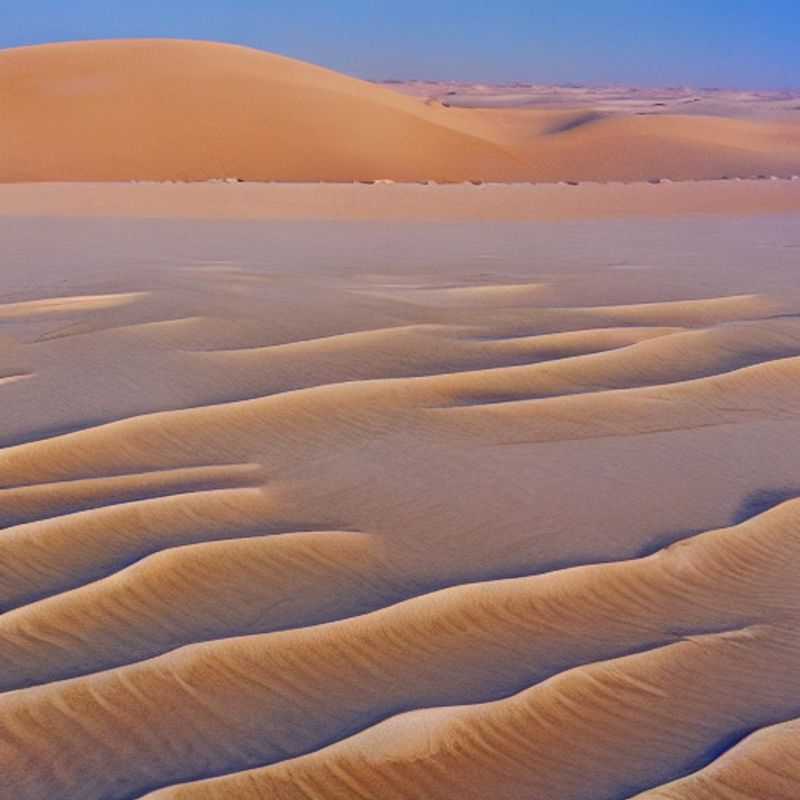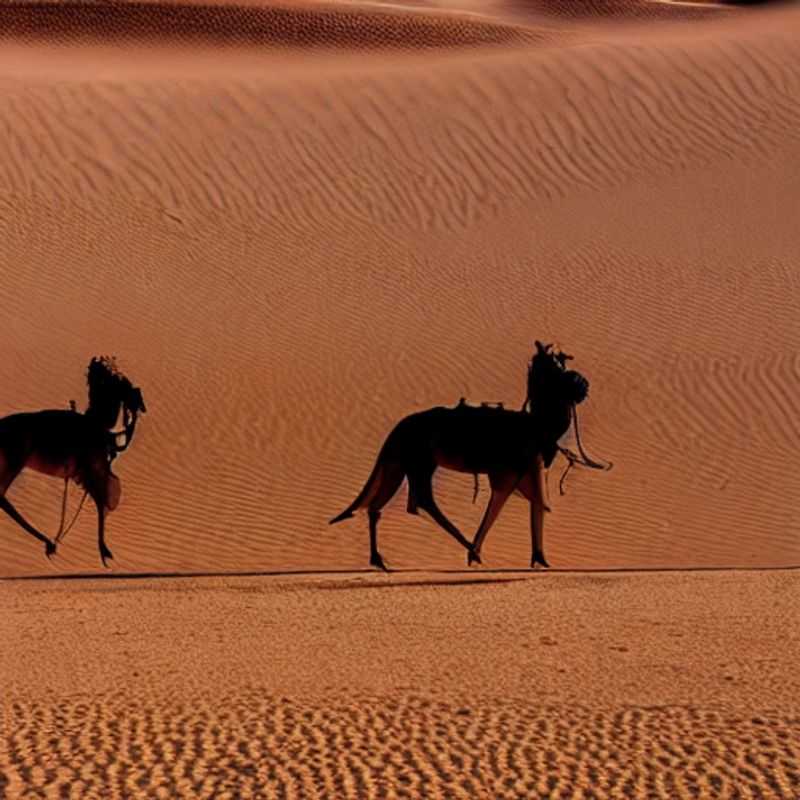Sahara Desert Safety: Your Top 4 Must-Know Travel Practices in Morocco & Tunisia

Is the Sahara Desert Safe to Visit in 2026? Your Essential Guide
Visiting the Sahara Desert in 2026 presents a nuanced picture regarding safety. While the allure of its vast, stark beauty remains, potential travelers must be aware of evolving conditions. Security concerns can fluctuate and vary significantly by region, so thorough and up-to-date research is paramount. Travelers should consult their government's travel advisories for the specific countries they intend to visit within the Sahara. These advisories offer the most current information on potential risks and safe travel zones. For those considering a trip, booking with reputable tour operators who have established safety protocols and local expertise is strongly recommended. These operators are often best equipped to navigate the desert's challenges and ensure a secure experience. Planning your itinerary to include well-trafficked routes and avoiding remote or politically unstable areas will significantly enhance your safety. Finally, proper preparation, including adequate supplies of water, sun protection, and appropriate clothing, is essential for a safe and enjoyable journey into this magnificent landscape.

You may also like
Sahara Serenity: Navigating the Sands Safely – A Guide to Political Stability & Desert Travel in Morocco & Tunisia
Exploring the Moroccan & Tunisian Sahara: Your Safety & Peace of Mind Come First
Sun, Sand, and Security: Understanding Political Stability in the Sahara for a Smooth Trip
Adventure Awaits: A Traveler's Guide to Safety and Political Stability in the Moroccan and Tunisian Sahara
Wanderlust & Wisdom: Prioritizing Safety When Discovering the Magic of the Sahara Desert
Unveiling the Sahara: A Journey Through Morocco & Tunisia with Safety & Peace of Mind
Beneath the Sahara Stars: Your Safe & Secure Journey Through Morocco and Tunisia
Desert Dreams: Traveling Safely Through Morocco and Tunisia's Sahara with Confidence
Beyond the Dunes: Responsible & Safe Travel in the Moroccan and Tunisian Sahara
Sahara Sojourn: Political Landscape & Your Safety First in Morocco & Tunisia
Jambo! As your friendly Sahara Desert guide, I'm thrilled to help you plan a safe and unforgettable winter family adventure in Morocco and Tunisia! For staycationers looking for a taste of the exotic, this region offers a unique blend of comfort and excitement, especially during the milder winter months.
Political Stability: Both Morocco and Tunisia are relatively stable politically, making them safe and welcoming destinations for families. However, it's always wise to check current travel advisories before you go.
Weather: Winter in the Sahara brings pleasantly warm days and cool nights. Perfect for exploring without the scorching summer heat! Expect daytime highs around 20-25°C (68-77°F) and cooler evenings. Pack layers!
Transportation: Hiring a driver is highly recommended, especially with children. It offers flexibility and safety, navigating the sometimes challenging terrain. Expect to pay around $50-$100 per day for a private driver. Domestic flights between cities are also a convenient option, costing approximately $100-$200 per flight.
Accommodation: Luxury desert camps and riads (traditional Moroccan houses) offer incredible experiences. Expect to pay $100-$300 per night for family-friendly accommodations. This price range can vary widely depending on the level of luxury you choose.
Food: Moroccan and Tunisian cuisine is a delight! Tagines (slow-cooked stews), couscous, and fresh pastries are must-tries. Street food is generally safe and offers a unique culinary experience. Budget $30-$50 per day for family meals.
Activities: Camel treks across the dunes are a classic Sahara experience! You can find family-friendly tours for around $50-$100 per person. Exploring ancient medinas (old towns), visiting oases, and stargazing are other magical activities. Entrance fees to sites typically range from $5-$20 per person.
Culture: Immerse yourselves in Berber culture – known for their hospitality, rich history, and beautiful crafts. Music and dance are a vital part of their traditions; you'll hear mesmerizing rhythms and see lively celebrations. Respect local customs by dressing modestly when visiting religious sites.
People: Moroccans and Tunisians are generally welcoming and friendly to tourists. You’ll encounter a blend of locals going about their daily lives and other families enjoying the wonders of the desert. It’s a great opportunity to exchange smiles and learn a few basic phrases in Arabic or Berber.
Architecture: The architecture is stunning! From the intricate designs of the medinas to the simple elegance of desert dwellings, there's beauty around every corner. Notice the use of natural materials like clay and wood, reflecting the environment.
Plants and Animals: The Sahara is surprisingly diverse! You'll see date palms, cacti, and other desert-adapted plants. Camels are, of course, iconic, and you might spot other animals like desert foxes and various birds.
Estimated Total Cost (7-day trip for a family of four):$3,000-$5,000. This is a rough estimate and can vary based on your choices of accommodation, activities, and dining.
Remember, this is just a glimpse of what awaits you. With careful planning and a sense of adventure, a family trip to the Sahara Desert will create memories to last a lifetime! Let's embark on this journey together!

You may also like
Sahara Adventures 2026: Backpacking Challenges & Rewards
Backpacking the Sahara Desert in 2026 presents a unique blend of formidable challenges and deeply rewarding experiences. The sheer scale and *harsh environment* are the primary hurdles. Travelers will face *extreme temperatures*, both scorching heat during the day and surprisingly cold nights, requiring careful planning for appropriate gear and hydration. The lack of readily available water sources means that carrying sufficient supplies is absolutely critical, making *weight management* a constant consideration for any backpacker. Navigation in the vast, featureless dunes can be disorienting; relying solely on GPS can be risky due to potential signal loss, making *traditional navigation skills* or experienced guides invaluable.
However, for those who prepare adequately, the rewards are profound. The *unparalleled solitude* and the chance to disconnect from modern life offer a truly transformative journey. Witnessing the *stunning desert landscapes*, from endless sand seas to rugged mountains, is a visual spectacle few places on Earth can match. The opportunity to experience *nomadic cultures* and learn about their ancient traditions provides a rich and authentic cultural immersion. For the adventurous backpacker, conquering the Sahara in 2026 is not just a trip; it's a test of resilience that fosters a deep sense of accomplishment and a connection with nature that is both humbling and invigorating. *Thorough research and respect for the environment and local customs* are paramount for a successful and enriching expedition.